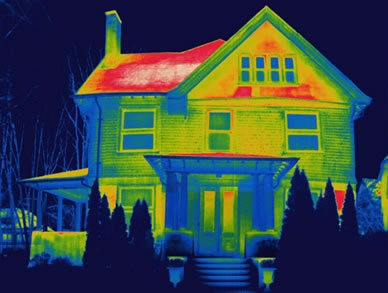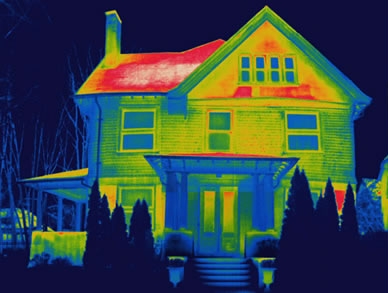Send your question to Umbra!
Q. Dear Umbra,
How do I reduce my carbon footprint in a house full of people?
Hannah Hulse
Port Orchard, Wash.
A. Dearest Hannah,
 How best to keep it cool in a communal house?Photo: sheepwoolinsulation.ie
How best to keep it cool in a communal house?Photo: sheepwoolinsulation.ie
You’re on one of those reality shows where they all live together, aren’t you? America’s Next Big Brother of the Jersey Shore, I think it’s called. I’m glad you wrote in — now I have your autograph! Maybe I can barter it at the farmers market for some of their lovely goat’s milk cheese.
Communal living, filmed or not, is tricky (as you’ve no doubt discovered). Unless it is a green-themed house, your housemates probably have varying degrees of concern and awareness about the environment. Talk to them. In my golden days of communal living, we held infrequent house meetings — a great time to mention that you want to reduce your footprint, explain why, try to convince them to get on board (saving everyone money on utility bills may be appealing), and let them know what you plan to do. Gauge their interest. Did they whip out their caulking guns, or sulkily ask, “You’re not gonna make us use those swirly lightbulbs, are you?” Adjust your plan accordingly.
If they’re on board, great! Energy Savers has a handy pie chart illustrating where your home’s energy goes (although since you live in Washington, you probably use less energy on cooling unless your home has A/C). Since heating (air and water) is the most energy-intensive, start there. (Some factors will be beyond your control. Unless your house is new and already well insulated, you own it, or you have an understanding landlord, clambering up to the attic and adding insulation is probably out of the question.)
Ask if you can turn down your hot water heater to 120 degrees (if you’re brave, ask your landlord about adding an insulating jacket — and whether that’s safe with the type of water heater you have). Change out your showerheads for low-flow ones, your lights for CFLs or LEDs (keep the old ones — you can switch them back when you move), and ask your roommates to consider washing their clothes on cold or warm instead of hot. (A small sign in the laundry room might help.) See if you can agree on a reasonable temperature to set the thermostat at (70? 65?).
Then there are behavioral changes. Remind your dear housemates of some energy-saving tips like not using the oven to heat the house, turning lights off when they leave a room (surprisingly difficult for my post-collegiate roomies, for some reason), and scraping leftover food off dishes instead of rinsing if you have a dishwasher.
There are even more possibilities if you have a backyard. Is a compost bin an option? What about backyard chickens, or joining a CSA? The distance your food travels to get to you accounts for part of your emissions. Perhaps you could spearhead a small garden, with your roommates pitching in to weed and help harvest — and enjoy — the tasty results.
All of this, of course, assumes your housemates are open-minded types who respect your concerns. If you live with stubborn, energy-hog roommates, it’s a different story. Then you’re limited to your loads of laundry and your light bulbs. You can also invest in a simple drying rack or good ol’ piece of string and air-dry your laundry [PDF], since the dryer’s your home’s second-biggest energy-guzzling appliance, after the fridge. Cut down on your carbon footprint even more by taking shorter showers (a shower timer might help) or switching to showers from baths and using power strips in your room (and remembering to turn them off). When it’s your turn to cook house dinner, or if you’re simply stir-frying on your own, cut back on meat and try to buy things in season that don’t have to be shipped from halfway around the world.
Hannah, have I lost you? I hope not. The good news is, there are lots of ways for you to live a simpler, less polluting life (and gently indoctrinate your housemates too). I hope you don’t get voted off the island. I will be rooting for you.
Realistically,
Umbra



